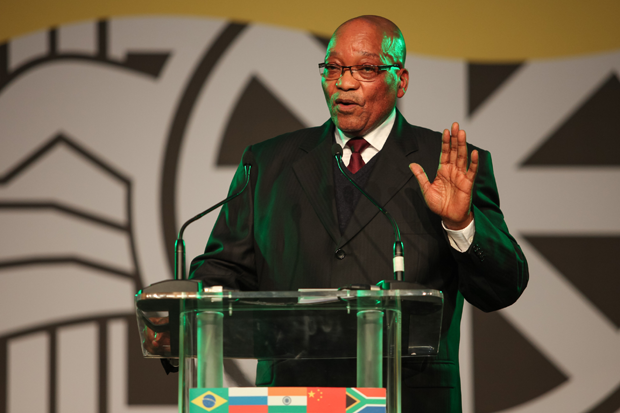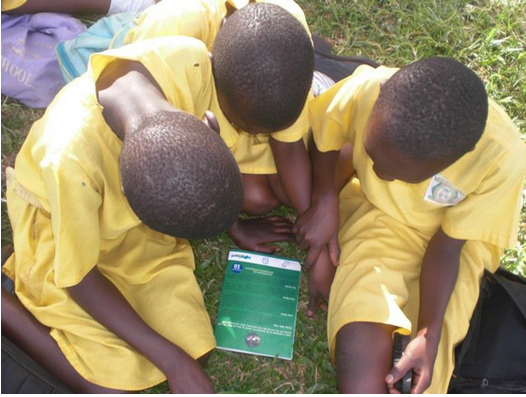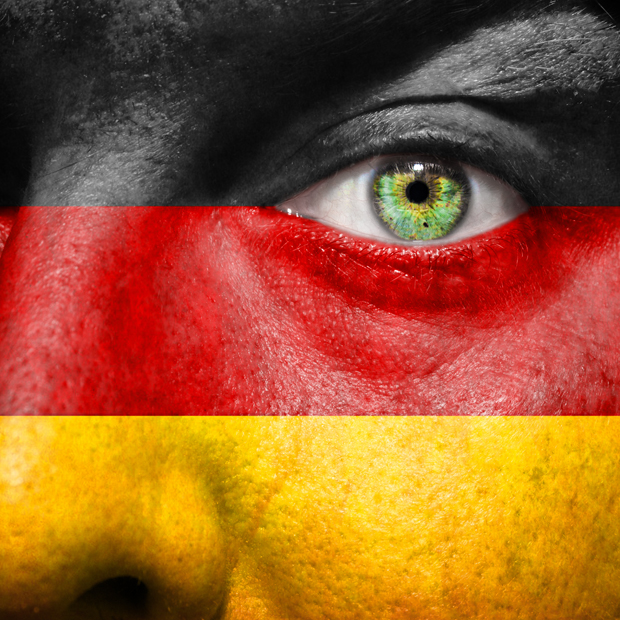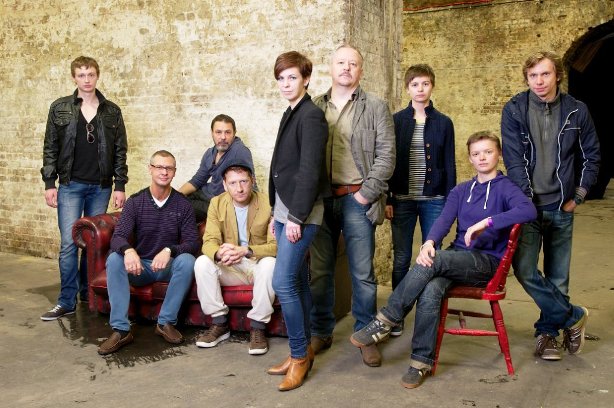23 Sep 2013 | News, Politics and Society, South Africa

Jacob Zuma (Photo: Jordi Matas / Demotix)
South Africa’s ruling African National Congress (ANC) has changed tack in its campaign to curtail the media. In a turn to what could be called “censorship lite”, the iron fist of state security intervention is being augmented by the velvet glove of calls for “patriotic” journalism.
After President Jacob Zuma’s ascendancy to the highest position in the ANC in 2007, various attacks have been launched on the private and public media. While factional battles for political control were being fought at the public broadcaster, an investigative journalist was illegally arrested after exposing corruption involving the newly appointed police commissioner. Despite concerted resistance across the social spectrum, the Protection of State Information Bill (dubbed the “Secrecy Bill”) was adopted, which will all but stop whistle blowing and investigate journalism into state corruption. And a media appeals tribunal has been mooted that could mete out punishments ranging from fines to jail time to media houses and individual journalists who offend politicians. While Zuma has referred the Secrecy Bill back to parliament for minor adjustments before signing it into law, the establishment of the tribunal is due to be considered by the country’s parliament, as per a policy decision of the ANC.
In recent times, individuals known to be close to Zuma and the ANC have gained greater influence in the media. This development seems to have precipitated a new softly-softly approach of edging the private media towards news reporting that is more amenable to dominant political interests. Zuma recently made a call for “patriotic journalism” which dovetails with a number of other initiatives by his allies in the media. The public broadcaster and two private media companies have all vowed to shift the media away from reporting on the “opposite of the positive”, as Zuma put it.
Zuma’s call was made in an off-the-cuff address at parliament. He told journalism students that, “When I go out, people envy South Africans, they wish they were South Africans because they say we are doing so well, we are succeeding… they love it. But when I am in South Africa, every morning you feel like you must leave this country because the reporting concentrates on the opposite of the positive.”
He asked the students: “Who do you think in reality you serve when reporting: the interest of the public that you claim, as the media you stand for, or the interest of the owners and managers of the paper? What is it that you think is happening, particularly in a country that is supposed to be an example with vibrant democracy, transparency, high morals, everything. How do we handle this?” Zuma expressed the hope that the South African media would learn from Mexico’s “patriotic journalism” which avoids reporting on crime and rather “markets” the country to foreigners.
His utterances follow a call by the acting chief operating officer of the South African Broadcasting Corporation (SABC), Hlaudi Motsoeneng, that 70% of the public broadcaster’s news reports should be positive. He told the Mail and Guardian that, “we want to concentrate more on positive stories, rather than to put everything in a negative way. Before you become a manager at the SABC, you first have to be a citizen of this country. You should love this country… The message I put out very strongly at the SABC is to think about the positive when people go out and do stories. The difference is our own citizens are tired of crime and tired of people talking about negative things.” Motsoeneng is a known Zuma acolyte who has controversially held onto his post after being dismissed by the previous SABC board.
Meanwhile, businessman Iqbal Survé, who enjoys close ties with the ANC, became the new owner of Independent News & Media, which comprises the largest collection of English-language daily and weekly newspaper titles in the country. He explained part of the rationale for the purchase as being: “We felt the media was not representing the positive aspects of South Africa. What we are reading about is not what we see in South Africa.”
During this same period, Indian business associates and friends of the Zuma family launched ANN7, a new satellite news service. The Gupta family recently provoked outrage for using a military air base near South Africa’s capital Pretoria to fly in guests from India for a private wedding function. The former head of government communications, Jimmy Manyi, hosts a talk show on the channel. Manyi is no stranger to controversy, having spearheaded attacks against the media during his time as government spokesperson, such as using state advertising spending to put pressure on media outlets. In an interview about his new job as talk show host, he declared South Africans to be tired of negative press and that ANN7 will provide an alternative.
ANN7’s broadcasts have been riddled with more than the usual share of start-up problems, leading to much ridicule. The company also had to withdraw a billboard advertisement describing competitors as “old farts”, after a complaint from the South African Older Persons Forum. Postings of “ANN7 bloopers” on YouTube led to a copyright complaint from ANN7 and the removal of the clips, but they can still be viewed elsewhere.
The mirth that greeted ANN7 was also evident in responses to Zuma’s call, both in articles and tweets. More serious critiques included an article from Media Monitoring Africa, while others pointed out that Mexico has one of the worst press freedom records in the world.
Thus far, velvet glove of censorship lite has not succeeded in massaging the established private media into a more “patriotic” stance. This may change when the iron fist of criminalisation of critical journalism finally comes crashing down.
This article was originally posted on 23 Sept 2013 at indexoncensorship.org
20 Sep 2013 | Africa, News, Uganda
 The heroine of The Little Maid, Viola, is an eight-year-old Ugandan girl who lives with her destitute grandmother and dreams of going to school. Instead, she is sent to live with her aunt, who promises to pay her school fees if Viola works for her first. Viola becomes a maid, forced to wash clothes, scrub the bathroom, cook and live in servants’ quarters. But every day when her cousins’ tutor arrives, she crawls underneath the dining room table to eavesdrop on the lessons. Eventually Viola learns to read and write and escapes the clutches of her evil aunt, who is found guilty of child abuse and child slavery and ordered to school her niece.
The heroine of The Little Maid, Viola, is an eight-year-old Ugandan girl who lives with her destitute grandmother and dreams of going to school. Instead, she is sent to live with her aunt, who promises to pay her school fees if Viola works for her first. Viola becomes a maid, forced to wash clothes, scrub the bathroom, cook and live in servants’ quarters. But every day when her cousins’ tutor arrives, she crawls underneath the dining room table to eavesdrop on the lessons. Eventually Viola learns to read and write and escapes the clutches of her evil aunt, who is found guilty of child abuse and child slavery and ordered to school her niece.
It could be a true story. In Uganda there are an estimated 2.75 million children engaged in work, although not many of those will have the happy ending. But The Little Maid is a work of fiction, written by Oscar Ranzo, a Ugandan social worker turned author who has penned five children’s books. Now, The Little Maid is being distributed to schools across the country low-cost (5,000 Ugandan shillings or $1.90 each) through his Oasis Book Project. The project aims to improve the reading and writing culture in Uganda and provide school-children with entertaining but educational stories to which they can relate. Ranzo sells most of his books to schools, with the proceeds used to publish more titles. However, he also donates copies to more impoverished areas.
In 1969, Professor Taban Lo Liyong, one of Africa’s best-known poets and fiction writers, declared Uganda a ‘literary desert’. “What we want to do with this project is create an oasis in the desert,” explains Ranzo. “That’s why I called it the Oasis Book Project.”
The small print
Excluding textbooks, there are only about 20 books published in Uganda annually. According to a study last year by Uwezo, an initiative aimed at improving competencies in literacy and numeracy among children aged six to sixteen years in East Africa, more than two out of every three pupils who had finished two years of primary school failed to pass basic tests in English, Swahili or numeracy. For children in the lower school years, Uganda recorded the worst results.
Growing up in the 1970s and 1980s, Ranzo was privileged to have a grandfather who had a library and attended a private school that held an after class reading session. He was a particularly avid fan of Enid Blyton’s Famous Five series.
“But Mum was a nurse and she wanted me to be a doctor. I wanted to pursue literature and she told me ‘no you can’t do that’, so I did sciences,” says Ranzo, stressing that literature, which remains optional in secondary school, is not taken seriously in Uganda.
Furthermore, many local publishers do not see writing fiction as profitable. “They’d rather publish textbooks and get the government to buy them,” Ranzo explains.
His books are available in two central Kampala bookshops for 8,000 shillings ($3). But in the past 15 months fewer than 20 have moved from the shelves, while he has sold over 3,000 to 20 schools in three districts.
Fiction imitating life
Saving Little Viola, his first book in which the female protagonist, Viola, was introduced, was published in 2011 by NGO Lively Minds. The story ends with Viola being saved by her best friend from two men who want to use her for a ritual sacrifice. UNICEF funded its distribution to 36 primary schools across Uganda as part of a child sacrifice awareness programme.
The primary aim of the Oasis Book Project is to encourage reading, although Ranzo admits he would like people to discuss his stories, which have themes close to his heart. Children being forced into work, the theme of The Little Maid, is something he has witnessed himself.
“Many kids are brought from villages to work as maids in homes in towns or cities, and the treatment they are subjected to is terrible in many cases,” says Ranzo.
His next book, The White Herdsman, which will be released in 2014, deals with the impact of oil production on communities, a timely subject for Ugandans with oil production expected to start in 2016. The book tells the story of a village where water in the well has turned black after an oil spill. A witchdoctor blames the disaster on an albino child.
Ranzo’s stories have been welcomed at Hormisdallen Primary, a private school in Kamwokya, Kampala. English teacher Agnes Kasibante, speaking to Think Africa Press, praises the book’s impact. “It’s actually a big problem in Uganda, most children don’t know how to read. At least those books give them morale to continue loving reading,” she says.
Ranzo has also penned Cross Pollination, a collection of fictional stories for adults about the spread of HIV in a community. According to a recent report, Uganda may not meet its target to increase adult literacy by 50% by 2015.
“I’ve worked in a big multinational company where people have jobs but they can’t write. Reading can help develop this,” says Ranzo, who is currently attending the University of Iowa’s 47th annual International Writing Program (IWP) Fall Residency.
Uganda’s literary comeback
Jennifer Makumbi, 46, a Ugandan doctoral student at Lancaster University, is one of a new generation of Ugandan authors. She won the Kwani Manuscript Project, a new literary prize for unpublished fiction by Africans, for her novel The Kintu Saga. She said Taban Lo Liyong’s description of Uganda as a literary desert was “heartbreaking, especially as in the 1960s Uganda seemed to be poised to be a leading literary producer”.
“But perhaps it is exactly this description that is pushing Ugandans to write in the last ten years,” she continues. “Yes, we have not caught up with West Africa yet but… there are quite a few wins.” In recent years, two female Ugandan authors, Monica Arac de Nyeko and Doreen Baingana, won the Caine Prize for African Writing and the Commonwealth Writers’ Prize respectively. Makumbi’s Kwani prize adds her to a list of eminent Ugandan authors.
Makumbi is optimistic about the future of Ugandan literature: “These I believe are indications that Uganda is on its way.”
This article was originally published on 17 Sept 2013 at Think Africa Press and is reposted here by permission.
20 Sep 2013 | News

(Photo illustration: Shutterstock)
Freedom of expression is protected by the German Constitution and basic laws. There is room for improvement, with Germany’s hate speech and libel laws being particularly severe.
Germany’s biggest limits on freedom of expression are due to its strict hate speech legislation which criminalises incitement to violence or hatred. Germany has particularly strict laws on the promotion or glorification of Nazism, or Holocaust denial with paragraph 130(3) of the German Criminal Code stipulating that those who ‘publicly or in an assembly approve, deny, or trivialise’ the Holocaust are liable to up to five years in prison or a fine. Hate speech also extends to insulting segments of the population or a national, racial or religious group, or one characterised by its ethnic customs.
Germany still has strict provisions in the criminal code providing penalties for defamation of the President, insulting the Federal Republic, its states, the flag, and the national anthem. However, in 2000, the Federal Constitutional Court stated that even harsh political criticism, however unjust, does not constitute insulting the Republic.
Freedom of religious expression is compromised through anti-blasphemy laws criminalising ‘offences related to religion and ideology’. Paragraph 166 of the Criminal Code prohibits defamation against ‘a church or other religious or ideological association within Germany, or their institutions or customs’. While very few people (just 10) have been convicted under the blasphemy legislation since 1969, the impact of hate speech legislation is seen more frequently, in particular in the prosecution of religious offences. In 2006, a pensioner in the state of North Rhine-Westphalia was given a 1-year suspended sentence for printing ‘The Koran, the Holy Koran’ on toilet paper, and sending it to 22 Mosques and Muslim community centres. In 2011, nine of the 18 operators of the far right online radio programme ‘Resistance Radio’ were given between 21 months and three years in prison for inciting hatred.
Germany has also seen heated debate over a widespread ban on religious symbols in public workplaces, especially affecting Muslim women who wear headscarves.
Half of Germany’s 16 states have, to various extents, banned teachers and civil servants from wearing religious symbols at work. Yet this is not applied equally to all religions; five states have made exceptions for Christian religious symbols.
Media freedom
Government and political interference in the media sector continues to raise concerns for media independence, with several incidents of interventions by politicians attempting to influence editorial policy. In 2009, chief editor of public service broadcaster ZDF, Nikolaus Brender saw his contract terminated by a board featuring several politicians from the ruling Christian Democratic Union. Reporters Without Borders labelled it a ‘blatant violation of the principle of independence of public broadcasters.’ In 2011, the editor of Bild, the country’s biggest newspaper, received a voicemail message from President Christian Wulff, who threatened ‘war’ on the tabloid which reported on unusual personal loan he received.
Media plurality is strong among regional newspapers though due to financial pressure, media plurality declined in 2009 and 2010. Germany has one of the most concentrated TV markets in Europe, with 82% of total TV advertising spend shared among just two main TV stations in Germany. This gives a significant amount of influence to just 2 broadcasters and the majority of Germans still receive their daily news from the television.
The legal framework for the media is generally positive with accessible public interest defences for journalists in the law of privacy and defamation. However, Germany still has criminal provisions in its defamation law, which although unused, remain in the penal code. Germany’s civil defamation law is medium to low cost in comparison with other European jurisdictions, places the burden of proof on the claimant (a protection to freedom of expression) and contains a responsible journalism defence, although not a broader public interest defence.
Digital
The digital sphere in Germany has remained relatively free with judicial oversight over content takedown, protections for online privacy and a high level of internet penetration (83% of Germans are online). Germany’s Federal Court of Justice has ruled that access to the internet is a basic right in modern society. Section 184b of the German Penal Code ‘states that it is a criminal offense to disseminate, publicly display, present or otherwise make accessible any pornographic material showing sexual activities performed by, on or in the presence of a child.’ Germany has also ratified and put into the law the Council of Europe’s Convention on Cyber Crimes from 2001. Mobile operators also signed up to a Code of Conduct in 2005, which includes a commitment to a dual system of identification and authentication to protect children from harmful content. This was reaffirmed and made binding in 2007.
There are concerns over the increased use of surveillance of online communications, especially since a new antiterrorism law took effect in 2009.
In 2011, German authorities acquired the license for a type of spyware called FinSpy, produced by the British Gamma Group. This spyware can bypass anti-virus software and can extract data from the device it is targeting. Two reports by the German Parliamentary Control Panel, from 2009 and 2010, stated that several German intelligence units had monitored emails with the amount of surveillance increasing from 7 million pieces items in 2009 to 37 million in 2010. However, Germany’s Constitutional Court ruled in February that intelligence agencies are only allowed to collect data secretly from suspects’ computers if there is evidence that human lives or state property are in danger and the authorities must get a court order before they secretly upload spyware to a suspect’s computer.
Germany’s tough hate speech legislation also chills free speech online. In January 2012, Twitter adopted a new global policy allowing the company to delete tweets if countries request it, meaning that tweets become subject to Germany’s hate speech laws. The latest Twitter transparency report states that German government agencies asked for just 2 items to be removed. In October 2012, Twitter also blocked the account of a far-right group, Better Hannover, after a police investigation.
Artistic freedom
Artists can work relatively freely in Germany. Freedom of expression in arts is protected under the Constitution, and is largely respected, especially for satire or comedy. Yet, the freedom of expression of artists is chilled through strict hate speech and blasphemy laws.
The German authorities very rarely use blasphemy laws against artists. However, there have been several examples of art being subjected to censorship due to religious offence. In 2012, at the exhibition ‘Caricatura VI – The Comic Art – analog, digital, international’ in Kassel, a cartoon created by cartoonist Mario Lars was removed after protests that it offended religious sensibilities.
There is persistent sensitivity around artistic works depicting the Nazi period. In April 2013, the German version of an Icelandic author’s book was ‘censored’ by its publisher, who cut 30 chapters from Hallgrímur Helga’s novel, ‘The woman at 1000°’. Key passages about Hitler, concentration camps and SS were censored to fit the German market.
19 Sep 2013 | Belarus
 This week, all 25 members of Belarus Free Theatre were in London ready to start their rehearsal for King Lear at the Globe, back after its triumph at the Globe to Globe Festival last year. The company is split between those living precariously in exile in London, and the rest who continue to work illegally and underground under appalling, oppressive conditions back in Minsk and getting everyone together is fraught with difficulties and danger.
This week, all 25 members of Belarus Free Theatre were in London ready to start their rehearsal for King Lear at the Globe, back after its triumph at the Globe to Globe Festival last year. The company is split between those living precariously in exile in London, and the rest who continue to work illegally and underground under appalling, oppressive conditions back in Minsk and getting everyone together is fraught with difficulties and danger.
Seeing them all together at a fundraising event in central London, they looked like a group of young actors anywhere in the world. But in order to get here, 20 of them had to be smuggled out of the country, taking different routes across the multiple borders of the land-locked country to fly from Vilnius, Riga, Warsaw, Kiev or Moscow to London. And the whole trip seemed in jeopardy when on Saturday night, their underground performance in Minsk was raided by the police. This is the first time that the performances have been raided since early July. The police usually just take down everyone’s details as they leave the show. But the significance of this raid was that they stopped the show mid-performance, taking down the actor’s audiences names and passport numbers before letting them go home.
They have been working out of the same small house, teaching students, rehearsing performing for their shows for several years now. But after this raid the actors feel it will not be long before they are unable to use the building. Finding a new building is extremely difficult because it means finding someone brave enough to rent their space to an illegal theatre company.


 The heroine of
The heroine of 
 This week, all 25 members of Belarus Free Theatre were in London ready to start their rehearsal for King Lear at the Globe, back after its triumph at the Globe to Globe Festival last year. The company is split between those living precariously in exile in London, and the rest who continue to work illegally and underground under appalling, oppressive conditions back in Minsk and getting everyone together is fraught with difficulties and danger.
This week, all 25 members of Belarus Free Theatre were in London ready to start their rehearsal for King Lear at the Globe, back after its triumph at the Globe to Globe Festival last year. The company is split between those living precariously in exile in London, and the rest who continue to work illegally and underground under appalling, oppressive conditions back in Minsk and getting everyone together is fraught with difficulties and danger.